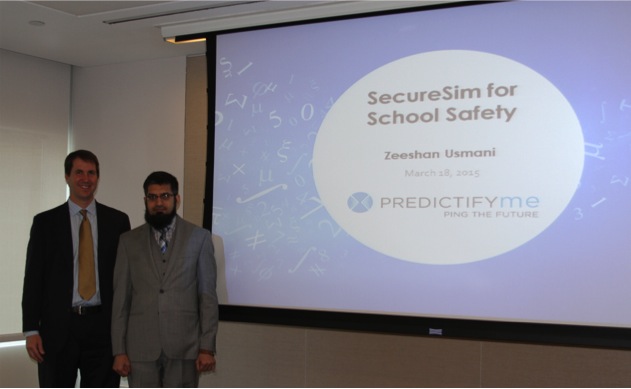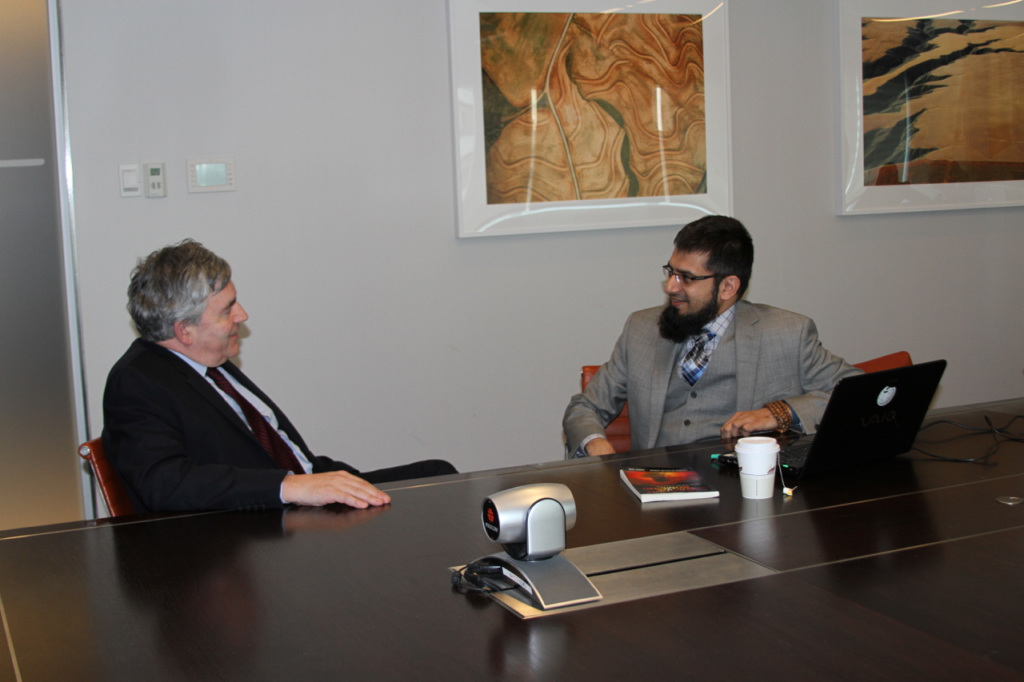Technology Company Joins Safe Schools Initiative in Pakistan

Zeeshan Usmani was born in the small town of Sukkur on the banks of the Indus River in Pakistan. The youngest of 14 siblings, he started his education at a local mosque and soon found himself in Florida earning a Masters and PhD in computer science.
As part of his doctoral studies, Zeeshan diligently trained himself in data mining, programming, machine learning and fraud detection and applied his new skills to predict suicide bombing attacks in Pakistan. His work became the basis for Predictify.Me – a US-based data sciences and predictive analytics firm co-founded with Rob Burns and the newest company in the GBC-Education #smartinvestment Network.
Rob met Zeeshan as an Eisenhower Fellow after spending significant time volunteering in inner city communities. Over the past 15 years, his passion has kept increasing around how kids’ lives are impacted by where they are born.
Today, three months following the horrific attack on innocent schoolchildren in Peshawar, Predictify.Me joins a new partnership – catalyzed by GBC-Education – which will deliver cutting-edge technology to promote Safe Schools in Pakistan. The announcement, at the UN headquarters in New York, follows an agreement between the UN Special Envoy for Global Education Gordon Brown and Pakistani Prime Minister Nawaz Sharif to support a national Safe Schools campaign.
Spearheaded by a pro-bono technology contribution from Predictify.Me – inspired by Zeeshan and Rob’s passion for helping children – the Pakistan Safe Schools Initiative will introduce the use of simulation software to assess the level of risk preparedness of schools and generate recommendations for school and community safety plans. The technologies, SecureSim and Soothsayer, are based on seven years of research and development, and simulate the impact of an explosion, establish security protocols and provide ongoing security forecasts.
Each participating school will receive a report providing a designation on the degree of risk, specific recommendations for improving the school’s set-up to become safer and recommendations for community preparedness measures and ongoing risk forecasts. UNICEF will join the initiative and integrate the work with disaster risk reduction programming for child friendly and safe school schools in Pakistan.
In the past five years, more than 1,000 schools have been destroyed in the Khyber-Pakhtunkhwa province, which includes Peshawar, where the latest and deadliest attack took place in December. If successful, the program has ambitions to be scaled up to cover all 200,000 schools in Pakistan.
The UN Special Envoy for Global Education said: “I am thankful to the Global Business Coalition for Education and the team at Predictify.Me for agreeing to support our efforts to ensure safe schools for every child in Pakistan. In my discussion with the Prime Minister we have agreed to do everything we can to ensure every girl and boy in Pakistan is able to go to school and learn. This initiative is a vital part of these efforts.”

UN Special Envoy for Global Education Gordon Brown and Predictify.Me’s Zeeshan Usmani discussing the Safe Schools Initiative
The Safe Schools movement is expanding rapidly. In Nigeria, the initiative, led by an initial investment from GBC-Education corporate leaders, has mobilized more than $30million for the protection of schools. International support has come from the United States, the United Kingdom, Norway, Germany and the African Development Bank.
And in Lebanon, efforts are underway to support a Safe Schools plan for education for nearly 500,000 Syrian refugees now living in the region through partnership efforts between the government of Lebanon, UN agencies and the international community.
